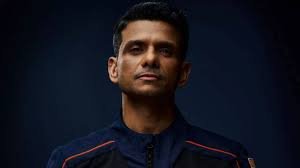
Indian astronaut Shubhanshu Shukla is all set to embark on a historic journey to the International Space Station (ISS) next month as part of the Axiom-4 mission, Union Minister Jitendra Singh announced on Friday. This marks a significant milestone for India, as it comes nearly four decades after Rakesh Sharma’s iconic spaceflight onboard Russia’s Soyuz spacecraft.
Minister Singh made the announcement after reviewing the progress of the Department of Space and the Indian Space Research Organisation (ISRO). He highlighted that Shukla’s upcoming mission is more than just a spaceflight; it represents India’s bold leap into the future of space exploration. “Group Captain Shukla’s journey is a signal that India is stepping boldly into a new era of space exploration,” Singh remarked.
Shubhanshu Shukla, a decorated test pilot with the Indian Air Force, was selected for ISRO’s Human Spaceflight Program and is also among the top contenders for India’s ambitious Gaganyaan mission. Singh emphasized that this mission holds particular significance as it will provide essential experience in various aspects of spaceflight operations, including launch protocols, microgravity adaptation, emergency preparedness, and more.
The Axiom-4 mission, scheduled for May, is expected to be a critical step in advancing India’s crewed space exploration goals. The experience gained by Shukla in spaceflight will play a key role in preparing India for the Gaganyaan mission, which aims to send Indian astronauts into space independently.
Singh also highlighted other upcoming ISRO missions, including the launch of the NISAR satellite, a collaborative project with NASA, which is slated for June. The satellite will be launched aboard the GSLV-Mark 2 rocket. Additionally, ISRO plans to launch BlueBird Block-2 satellites in July using the heavy-lift LVM-3 rocket. These efforts reflect India’s commitment to expanding its international space collaborations.
Shukla’s mission not only marks a personal achievement but also represents India’s growing engagement with global partnerships in space technology. This underscores India’s resolve to become a serious player in human space exploration, with significant attention given to operational readiness and international integration.
Minister Singh further stressed the importance of projects like Gaganyaan and the PSLV-C61 mission, which will carry the EOS-09 satellite. This satellite is equipped with a C-band synthetic aperture radar, allowing it to capture high-resolution images of Earth’s surface under all weather conditions, day or night.
Another key development in India’s space program is the Test Vehicle-D2 mission, which will simulate an abort scenario and demonstrate the Gaganyaan Crew Escape System. This mission includes sea recovery operations for the Crew Module, mimicking the procedures for India’s first human spaceflight.
India’s growing space capabilities reflect its aspirations to become a global leader in space technology while remaining aligned with the vision of a developed and self-reliant nation. As Shukla prepares for his mission, the world watches with anticipation as India continues to make strides in space exploration.
With missions like Axiom-4, Gaganyaan, and collaborations with international partners, India is poised to enter a new era of space exploration, with Group Captain Shukla’s journey marking the beginning of many more significant milestones.
Sources By Agencies

